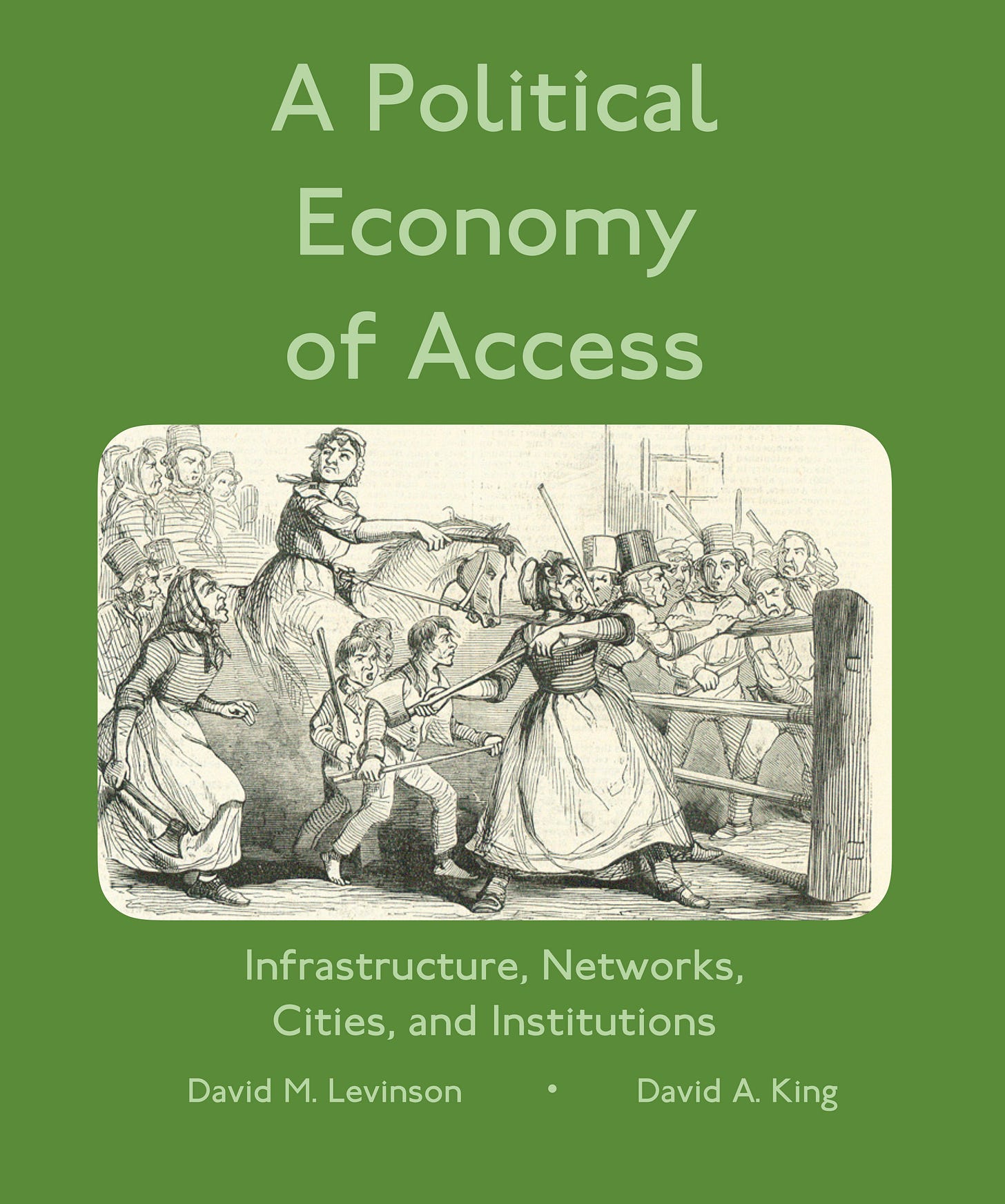On lying as a vicious cycle
Back in 2008, as the world economy was on the verge of collapse, I wrote a post "Trust as a positive externality." At the time the concern was whether people would continue to redeem little green pieces of paper for actual goods and services. Fortunately, wise leaders stepped up to the occasion, and while their actions were imperfect and too few bankers went to jail, the system of trust that drives the economy of civilization was maintained.

A Political Economy of Access: Infrastructure, Networks, Cities, and Institutions by David M. Levinson and David A. King
We have recently decided as a civilization to elect unwise 'leaders.' 'Leaders' for whom the old joke:
"How can you tell when a politician is lying?
They are moving their lips"
is no longer funny.
If we cannot trust the word of our so-called 'leaders,' can we trust their minions, or anyone in government who reports to them and does their bidding. And as lying becomes the norm, won't the entire system of trust will break down? Why should one cooperate with the dishonest? And if you cannot tell who remains honest, or no-one remains honest, mutually beneficial cooperation, the cornerstone of civilized society, crumbles.
Ensuring trust, that someone will do what they say (i.e. pay you) after you do what you say (perform a service) is tricky, but extremely valuable. The value arises in being able to trade with strangers, not just brothers and cousins. It permits specialization in a way unfathomable to Adam Smith.
To enable the smooth function of trust, society developed an entire legal system to avoid cycles of vigilante vendettas that arose after perceived or real slights. But as liars take the helm, the legal system itself becomes corruptible. We have a chain where at one end are the judges, appointed over time by the liars. In the middle are prosecutors, typically appointed by the same, and at the other end are the police, with their own biases.
So if I loan you money, and you don't repay, and I sue you, but you control the courts, or just have friends in the right places, I will not get repaid. If I know that, I won't loan you money. Instead, if I am not careful, you will just take my assets, and I will call the police, and they will shrug their shoulders, and I have lost my money anyway. Smart people outside the power structure will try to emigrate from such a low trust society, leaving it with a brain drain and less voluntary trade, less specialization, so ultimately it will under-perform higher trust societies over time. This is bad on dimensions beyond the economic.
Trust can decay from the bottom up or the top down. The disintegration is surely faster when it starts at the top.

